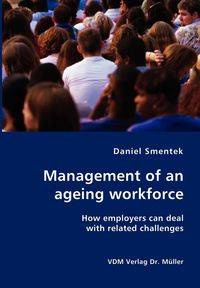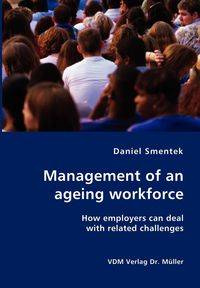Management of an ageing workforce - Daniel Smentek
Management of an ageing workforce - Daniel Smentek
- How employers can deal with related challenges
EAN: 9783836404006
Symbol
328EXO03527KS
Autorzy
Daniel Smentek
Rok wydania
2007
Elementy
88
Format
17.0x24.4cm
Język
angielski

Bez ryzyka
14 dni na łatwy zwrot

Szeroki asortyment
ponad milion pozycji

Niskie ceny i rabaty
nawet do 50% każdego dnia
Niepotwierdzona zakupem
Ocena: /5
Symbol
328EXO03527KS
Kod producenta
9783836404006
Autorzy
Daniel Smentek
Rok wydania
2007
Elementy
88
Format
17.0x24.4cm
Język
angielski

Germany's population, and consequently its workforce is ageing. Fewer
young people will enter the workforce and employers will be pressed to draw
from an expanding pool of older people. As a consequence the working age
population is projected to decline significantly; while the numbers of organisations
depended on them will rise. At the same time, baby boomers are moving
towards retirement and can not be replaced by middle-aged or younger
workers. Facing impending talent shortages and a substantial loss of knowledge
and experience, companies might have little choice but to implement
new employment strategies.
Regardless of specific industry conditions and circumstances the paper covers
selected peripheral issues like attitudes and retirement intentions of older
workers and the myths and stereotypes about them from a German perspective.
It provides an overview of the German labour market, specifically the situation
of older people, and how public policy has been responding to improve
related conditions. Finally, minor and major interventions are presented
to adapt human resource methods, work arrangements, and framework conditions.
The paper is aimed to assist those who have the authority and responsibility
to react, helping them to recognise what implications the ageing workforce
will have on their business and showing them appropriate possibilities of
how to adapt their organisations to the changing workforce demographics.
EAN: 9783836404006
EAN: 9783836404006
Niepotwierdzona zakupem
Ocena: /5
Zapytaj o produkt
Niepotwierdzona zakupem
Ocena: /5
Napisz swoją opinię

